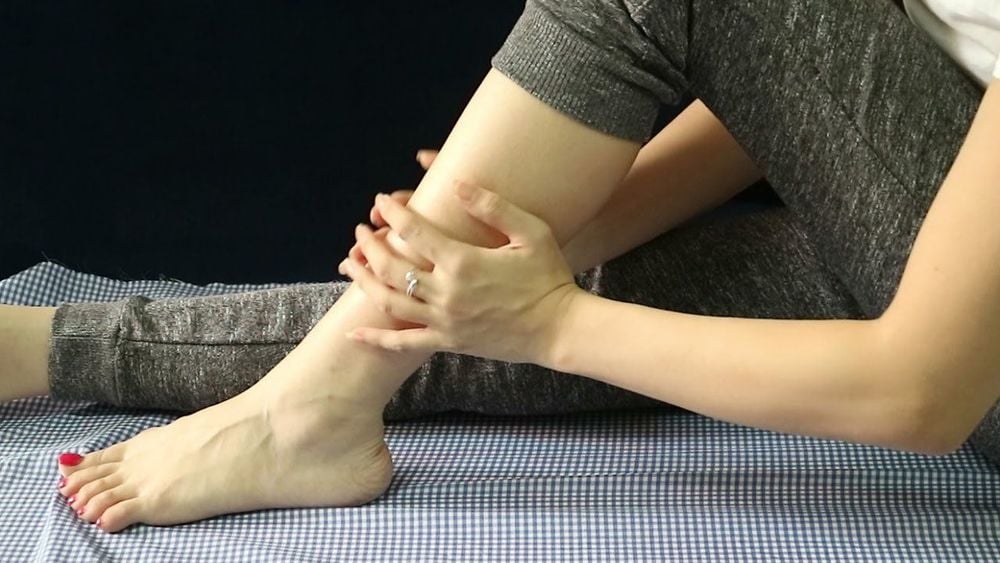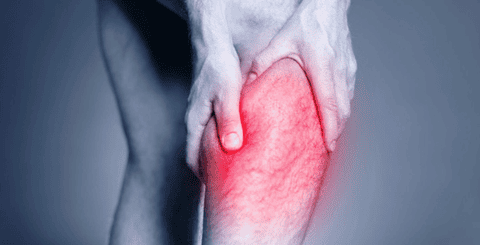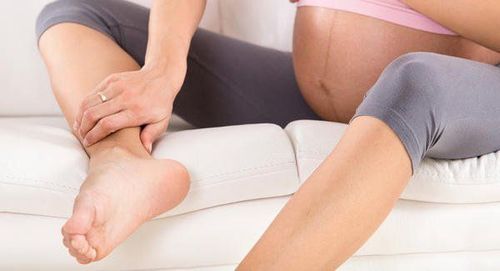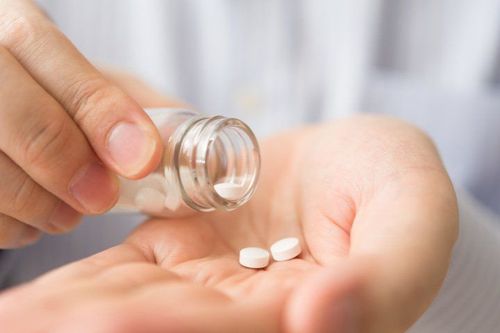This is an automatically translated article.
The article is professionally consulted by Master, Doctor Nguyen Thi My - Department of Medical Examination & Internal Medicine - Vinmec Danang International Hospital.A pain from a calf cramp usually lasts a few minutes. The severity of the pain varies, in some cases it can last only a few seconds, and in others it can last up to 10 minutes. So how to deal with frequent calf cramps?
1. What are calf cramps?
Calf cramp is pain that comes from the calf muscles due to muscle spasms when a movement in the muscle is too difficult. It usually occurs in the calves, below, and behind the knee. The small muscles of the foot are sometimes affected. A calf cramp usually lasts a few minutes. The severity of the pain varies, and in some cases it can last only a few seconds, but in some cases it lasts up to 10 minutes.Calf cramps usually occur while you are resting, are most common at night while in bed, and are commonly referred to as night cramps. Cramps can wake you up and become an extremely annoying thing when sleep is often disturbed.

2. Frequent calf cramps warn of what?
It is often thought that calf cramps are common in athletes, in people who are physically active, or when you have to be more active that day than usual. However, there are reasons that cause cramps that you definitely don't expect. This is also a warning sign that your body is at risk of negative diseases:Dehydration: Dehydration in the body will lead to an imbalance of electrical and ionic signals. So, at this point, the body doesn't know if the signal is from the brain or just because there's an electrical imbalance around the cell, resulting in the muscles to jitter and contract unpredictably. You can prevent this situation by drinking plenty of water, 1.5 to 2 liters of water per day and replenishing electrolytes.

Pinched nerve: Anything that can cause a nerve to be pinched such as herniated disc, arthritis, lumbar spinal stenosis... can irritate the cord. nerve leads to cramps. If you can walk in a slightly bent position, such as when pushing a cart, this will help improve and prevent cramping.
Calcium deficiency during pregnancy: Hormonal changes during pregnancy cause pregnant women to experience cramps. This cramping usually occurs in the calf area and starts at night during the second and third trimesters.
The cause of cramps in the calves or other organs of pregnant women is due to a deficiency of calcium, phosphorus, magnesium, due to the weight and size of the uterus pressing on the blood vessels in the lower extremities or due to the Muscles in the lower extremities must carry the weight of the body, due to the weight of the fetus.
Anemia/circulatory disorder: This is a possible reason for muscle cramps. Anemia means that you don't have enough blood to reach your feet, arms and other parts of your body, causing you to experience cramps in your feet, arms, etc., leading to pain.
Spontaneous leg cramps: In most cases, the cause is not found. One theory is that leg cramps occur when a muscle in a position shortens and is stimulated to contract. When a muscle is shortened, continued contraction can cause the muscle to contract. This usually happens at night in bed, as we naturally lie with our knees slightly bent (bent), and with our feet just slightly down. In this position the calf muscle is relatively short and can be prone to cramping.
In addition, some medications can cause leg cramps as a side effect, or make cramps happen more often. Some people on dialysis have leg cramps; some other conditions such as an underactive thyroid gland that is not detected and treated, peripheral artery disease (narrowing of the leg arteries that causes poor circulation), some common disorders of the nerves or some rare diseases including cirrhosis, lead poisoning; Drinking too much alcohol can also cause leg cramps.
Therefore, when experiencing too many unexpected cramps, you should visit a specialized medical facility to know the exact cause, and find ways to overcome this painful and uncomfortable symptom.
3. Calf cramps, what to do?
When a spasm begins, it is important to quickly stretch the muscle that is about to be contracted as soon as possible, then the pain will be greatly reduced. Before you go to bed, to prevent nighttime cramps, stretch muscles that are prone to cramps for a few minutes before going to bed. For example, if you have a calf cramp, do this stretch by stretching the dorsal flexion of the foot as much as possible for a few minutes to stretch this muscle, if the front leg muscle is contracted, then extend the foot as much as possible for a few minutes. minute.
4. Prevention of leg cramps
In order for rats to not bother you, from now on, follow the rules below:Drink enough water each day, about 6 to 8 cups, equivalent to 1.5 to 2 liters of water. Exercise regularly and warm up well before exercising. Make it a habit to exercise your legs before going to bed. Should eat a lot of vegetables in the main meals, after each meal should add fruits such as bananas, apricots, oranges, papayas, mangoes. Follow a balanced diet with enough nutrients: protein, sugar, fat, vitamins and minerals. Avoid stress, excessive stress because it can lead to cramps, make hormones in the body imbalance, heart rate increases, blood pressure increases. Calf cramps are not uncommon and are not usually dangerous. But if calf cramps occur frequently, you should see a doctor, because this is most likely a warning sign of some health problem.
Master. American doctor has more than 6 years of experience as an internal medicine doctor at Hue Central Hospital, Hue University of Medicine and Pharmacy Hospital; Tam Tri Da Nang Hospital; Danang Hospital. Currently, he is a General Internal Medicine Doctor at Vinmec Da Nang International General Hospital.
Please dial HOTLINE for more information or register for an appointment HERE. Download MyVinmec app to make appointments faster and to manage your bookings easily.














